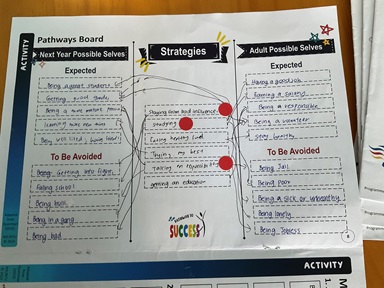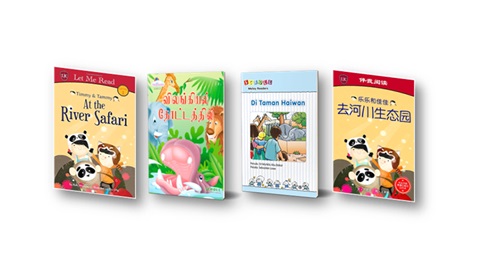eBooks vs Paper Books - Impact on Preschool Reading Habits
OER 13/19 SH - Mandarin eBook App and Singaporean Bilingual Children’s Home Reading Quantity, Quality and Emergent Literacy Outcomes
Project Team
PI: Dr Sun He, CRCD, NIE
Co-PI: Dr Beth Ann O’Brien, CRCD, NIE
Co-PI: Associate Professor Tan Chee Lay, GPL & ALC, NIE
Co-PI: Associate Professor Chen Wenli, LSA, NIE
Co-PI: Dr Yu Yue, CRCD, NIE
Collaborators:
Dr Wong Lung Hsiang, CRPP, NIEAssistant Professor Clarence Green, The University of Hong Kong
Professor Tan Oon Seng, SCCCE, NIEMs Lynn Ang, National Library Board
Assistant Professor Seyed Hadi Mirvahedi, University of Groningen
Associate Professor Chee Wah Sum, Singapore University of Social Sciences
Project Description
Despite bilingualism being a central pillar of Singapore's education system, a gap is widening between English and Mother Tongue Language (MTL) learning outcomes. A promising solution to early MTL learning is eBooks, which can enhance access to books and improve the reading experience with multimedia features. High-quality parental involvement in shared book reading can further amplify these benefits by deepening children's reading comprehension with appropriate questions and comments. This study explores the potential of an eBook app and reading tip videos to support Mandarin reading at home
The research team provided reading materials to 122 preschool children and their families and tracked their reading habits weekly. Participants received either a set of paper books or eBooks on a reading application. Separately, some participants from both the eBook and Paper book conditions also received a series of videos with reading tips. Child language outcomes were assessed three times over the course of the study, and individual family’s Shared Book Reading Behaviour was observed twice.
Findings showed that children in the eBook condition read less, but exhibited greater independent reading behaviour compared to the paper book condition. Parents who received the reading tips were also observed to ask more questions and give more comments on non-perceptual information (such as character feelings) while reading.
Project Implications
Our results revealed interesting patterns in children's use of eBooks. Children using eBooks read more independently and less with parents, likely because parents were comfortable allowing them to use the app on their own. However, this may suggest that parents used the app as a substitute for direct involvement, which could have led to a decrease in overall reading time in Mandarin Chinese.
Recommendations for Parents:
- Explore eBooks as a way of cultivating beneficial reading habits for children, especially in Mother Tongue Languages.
- Child reading of eBooks should be with parental interaction, for the best learning outcomes.
Resources
Selected Articles
- Sun, H., Tan, J., & Chen, W. L. (2023). COVID-19 and bilingual children’s home language environment: digital media, socioeconomic status, and language status. Frontiers in Psychology, 14:1115108. https://doi.org/10.3389/fpsyg.2023.1115108
- Sun, H. (2023). Harmonious bilingual experience and child wellbeing: a conceptual framework. Frontiers in Psychology, 14. https://doi.org/10.3380/fpsyg.2023.1282863






.tmb-listing.jpg?Culture=en&sfvrsn=b0306905_1)